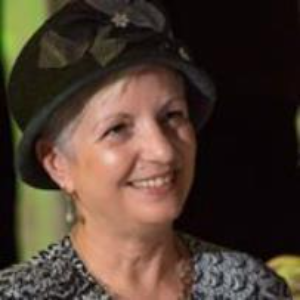Title : Jewish orthodox nurses in the Israeli health system
Abstract:
Background: Until the establishment of the State of Israel, there were almost no Jewish nurses. In Europe, the nursing profession was under the auspices of Christian monasteries; hence, Jewish women were not eligible to become nurses. At that time, women who had worked as nurses were considered to have derailed from the Jewish lifestyle (Bar Tal, 2010). In 1937, Dr. Wallach, an Orthodox Jew, established the school for religious nurses at the Shaarei Zedek hospital in Jerusalem, which functioned while adhering to the strict Orthodox religious rules. The establishment of two additional orthodox medical centers (Laniado and Maayanei Hayeshua) made it possible for Jewish women to study nursing and find employment as professional nurses. Nowadays, nursing has become an academic profession and the establishment of the JCT nursing program (2008) catered to the growing need for male and female Orthodox Jewish nurses. The JCT nursing school also operates a branch in the ultra-Orthodox college, catering to ultra-Orthodox women who have graduated from religious school. Every year approximately 75 students who wish to study nursing join the program, often fighting its stigma as well as its opposition by their community, family and the rabbis. The Orthodox women who wish to join this professional field face unique set of problems, starting with the initial decision to pursue academic studies as well as religion-related issues that routinely arise throughout their career, regardless of the specific department or clinic where they work.
Goals: The current study describes the tension and the difficulties that Orthodox women encounter throughout their professional journey, both as students training for the profession and as nurses. Specifically, the study attempted to explore the clash that participants’ experience between their functions as women in the religious community and in the family framework, on the one hand, and their career ambitions, on the other hand.
Methods: In this qualitative study, 12 female Orthodox participants, both nursing students and qualified nurses working at both religious and secular medical centers, were interviewed. Participants indicated that the Orthodox community is critical of their professional choice, because of the particular spiritual challenge that the demands of the profession impose on the female members of the Orthodox community. We also interviewed a number of leaders of Orthodox communities. Interviews were recorded, transcribed, and analyzed based on grounded theory.
Discussion: We believe that openly addressing the unique challenges that Orthodox nurses in Israel face vis-à-vis their way of life serves to promote their cultural preparedness and skills. Facilitating information to the public helps generate mutual responsiveness and openness, creating a strong basis for cooperation among members of the nursing profession who come from various social, ethnic, and religious backgrounds.
Take Away Notes:
• Understanding multi cultures
• Addressing particular needs within cultural diversity
• Facilitating information to the public helps generate mutual responsiveness and openness, creating a strong basis for cooperation among members of the nursing profession who come from various social, ethnic, and religious backgrounds



